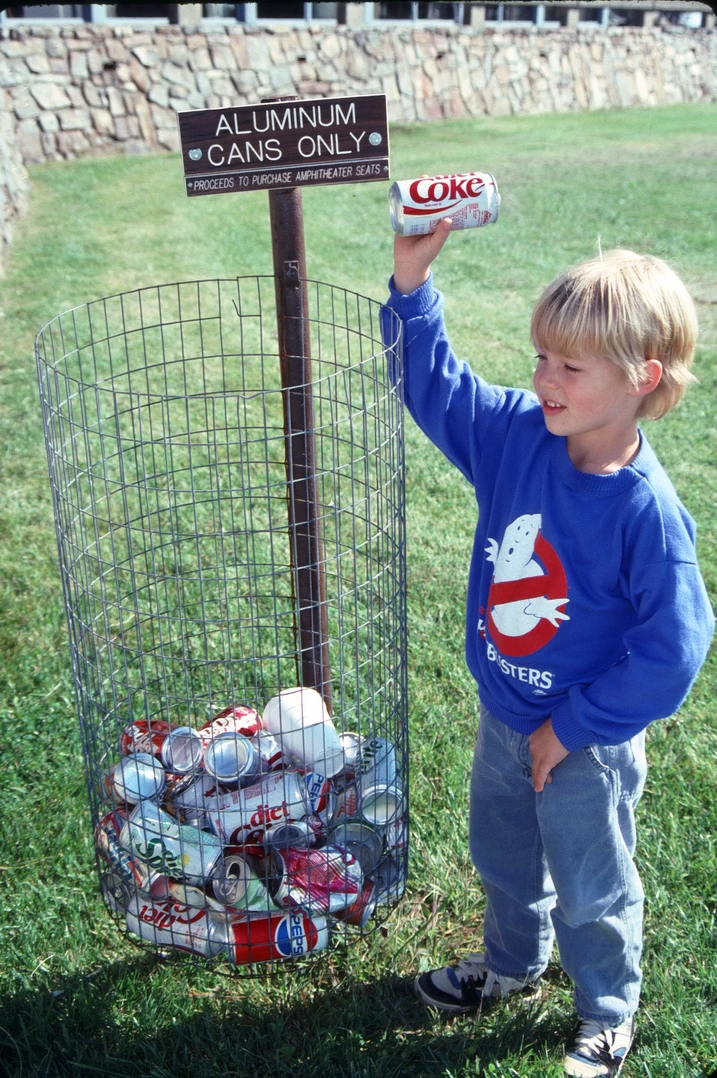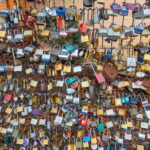

Would you like to make our world a better place in which to live? Certainly, all of us who hunt, fish and love the outdoors would answer that question with a resounding “Yes!”
There are many ways to attain such a lofty goal, including the following simple things you can do at home and afield to help our environment. Most cost almost nothing to implement. Many will actually save you money. All, no matter how inconsequential they appear, help combat specific environmental problems.
So why not get started? Let’s all do our part to help the environment.
Tips for Anglers & Boaters
1. Recycle fish. Catch-and-release fishing lessens the ever-increasing demands placed on our fisheries resources.
2. Properly dispose of used fishing line. Thousands of animals die yearly after becoming entangled in carelessly discarded line. Other trash kills, too, including plastic six-pack rings, plastic bags, bottle caps, old fishing lures and cigarette butts. Don’t drop trash in the water, even if it sinks. Save it for proper disposal on land.
3. When wading, disturb the stream bed as little as possible to protect delicate habitats there.
4. Avoid purposely introducing non-native fish species or discarding unused live bait in favorite fishing waters. If an unwanted species gains a foothold, it can wreak havoc on natural ecosystems.
5. Be familiar with creel and length limits, and always follow them. Never take more or smaller fish than allowed by law. Limits are set to protect fish populations.
6. Avoid spilling fuel and oil when filling your motor. These chemicals are deadly to aquatic life.
Tips for Hunters & Trappers
1. Be a law-abiding sportsman. Regulations aren’t set to inconvenience people, but to protect wildlife populations and allow the maximum number of people to enjoy the resource.
2. Recycle shotshell hulls and bullet casings. If you don’t reload shells yourself, save them for someone who does. Shells left in the field are unsightly trash that lasts for decades.
3. Don’t use exposed baits, including hair or feathers, within 20 feet of traps. It’s not only illegal, it leads to the death of many non-target animals, including eagles and hawks.
4. If you use plastic flagging or other material to mark the route to your hunting stand (never use chopped blazes or paint), remove it when your hunt ends. Flagging is one of the most prevalent forms of unsightly trash on many public hunting areas.
5. Restrict your use of ATVs and 4WD vehicles to maintained roadways. Improper use can destroy native vegetation, cause erosion problems, disrupt normal wildlife activity and destroy the aesthetics of the hunt for other sportsmen.
6. Try to pass on responsible hunting behavior to fellow hunters. If a new hunter seems to be going astray, try to educate him in hunting ethics. If a companion refuses to hunt responsibly, refuse to hunt with him.
Tips for Campers, Hikers & Other Recreationists
1. To minimize human impact on trail systems, stick to marked trails, walk single file to avoid widening the trail, and don’t take shortcuts that in time will become well-worn paths. Wear as light a shoe as safely appropriate for the terrain you’re traveling.
2. When camping, always use existing, well-established sites when possible. If you have a choice, pick an area where vegetation will be least trampled. Don’t dig or trench in camp, and try to leave the area so natural looking the next person can’t tell someone else camped there. Carry out everything you brought.
3. Build fewer campfires; carry a camper’s stove for cooking. If you must have a fire, build it in an existing fire ring or scar, or use a fire pit dug down to mineral soil. After the fire is completely out, scatter the ashes. Soil can then be replaced and watered. Don’t cut standing vegetation; use only dead wood on the ground for fuel.
4. Where adequate disposal facilities aren’t provided, bury human wastes in an eight-inch-deep pit. Choose a burial location at least 200 feet from lakes and streams. Put a trash bag near the latrine to collect toilet paper, tampons, diapers and other toiletry items for proper disposal. Burn paper in a campfire, but pack out other garbage. Don’t bury garbage, or try to hide it.
5. Even if you don’t hunt or fish, buy hunting and fishing licenses and waterfowl stamps. Monies from sales are used to purchase wildlife habitat and to manage all Arkansas wildlife, game and nongame species alike.
6. Photographers should be careful not to disrupt normal wildlife activities. Nesting birds, endangered and threatened species, and large concentrations of waterfowl, deer and other animals on wintering grounds are especially susceptible to adverse impacts from human disturbance. Never compromise any animal’s well-being for the sake of a photograph.
Tips for Everyone
1. Create a backyard wildlife refuge. By landscaping and planting with wildlife in mind, you can help make up for the loss of natural habitat.
2. Invest in insulation, weather-stripping and caulking for your home. Nearly half the energy used in homes goes “out the window” or through the attic, cracks or other leaks. Attic insulation alone can save five percent or more on heating costs, 15 percent on air conditioning costs. Local utilities often provide energy audits for little or no cost.
3. Start a compost pile to recycle organic wastes like leaves, grass and kitchen leftovers. Besides being a source of natural fertilizer, compost piles help cut down the amount of solid waste being dumped in crowded landfills.
4. Check your refrigerator temperature; it should be between 38 and 42 degrees. The freezer should be 0 to 5 degrees. If these appliances are 10 degrees colder than necessary, energy consumption can increase up to 25 percent.
5. Install low-flow aerators on faucets to save hot water. This also cuts water use by up to 280 gallons per month for a family of four. That’s 3,360 gallons annually for one family, so if the 31,000 families reading this magazine install low-flow aerators, we could save over 104 million gallons a year!
6. Use latex paint instead of oil-based paint for home improvement projects. Not only is oil-based paint toxic, but the by-products of manufacturing it are nasty pollutants like sulfuric acid, heavy metals and chlorinated hydrocarbons. Paint and paint products account for 60 percent of the hazardous waste dumped by home owners. Dispose of them properly.
7. Avoid unnecessary water use. Here are two easy tips. Don’t let the tap run while you shave or brush your teeth; you’ll save several gallons of water each time. Wash your car at a self-service car wash. This uses 5 to 10 gallons of water compared to the 150 you’ll use washing your car with a hose at home.
8. Cars have a serious impact on our environment, but we can all help lessen auto-related environmental problems. Buy fuel-efficient vehicles, and keep them running as efficiently as possible. Get regular tune-ups, keep fuel filters clean, and use properly inflated steel-belted radial tires to improve gas mileage.
9. Releasing unwanted pets in the wild is not only cruel, it can have serious adverse impacts on natural wildlife communities. Find someone who’ll take your unwanted animals or else have them humanely destroyed.
10. Have your dogs and cats spayed or neutered. Don’t let them roam free. Thousands of free-roaming cats and dogs kill tremendous numbers of native animals yearly.
11. Look for alternatives to using herbicides and pesticides around your home. Most gardens and yards can be successfully managed without toxic chemicals.
12. Carpool to work. Sharing a ride reduces gas consumption and auto emissions. Many local governments recommend carpools and can help you start or join one.
13. Be thoughtful about purchases. Avoid over-packed or disposable items. Buy products in bulk or economy size. Buy durable or repairable products. Buy products in returnable containers.
14. More recycling hints. Reuse wrapping paper, plastic bags and boxes. Donate unwanted magazines and books to hospitals and nursing homes. Buy products made from or packaged in recycled materials. Donate your old Christmas tree to agencies gathering them for fish shelter projects. Make bird feeders from old coffee cans, plastic soda bottles or milk jugs. Check to see what local recycling centers accept–paper, plastics, aluminum cans, car batteries, used car oil, etc.–then separate those items from non-recyclable garbage.
15. Join, support and volunteer your time to organizations working on causes important to you.
16. Pass along the environmental ethic. Set an example for your children, and tell them why it’s important for us all to be good stewards of our environment. Teaching youth to appreciate the outdoors is an important key to solving environmental problems.
17. Spread the word. Now that you’ve invested time reading this article, you’re aware of some of the ways one person can make a difference. Here’s another way: pass this story on to other people. Or at least pass on what you’ve learned. As you inspire friends and family, they’ll inspire others. Our ability to have a positive impact will grow proportionately.

Keith “Catfish” Sutton of Alexander, Arkansas, is one of the country’s best-known outdoor
journalists. His stories and photographs about fishing, hunting, wildlife and conservation have
been read by millions in hundreds of books, magazines, newspapers and websites. He and his
wife Theresa own C&C Outdoor Productions Inc., an Arkansas-based writing, photography,
lecturing and editorial service.




Get DownHome Arkansas blog posts, news, and more directly by email. Give us your name and email if you’d like to subscribe.